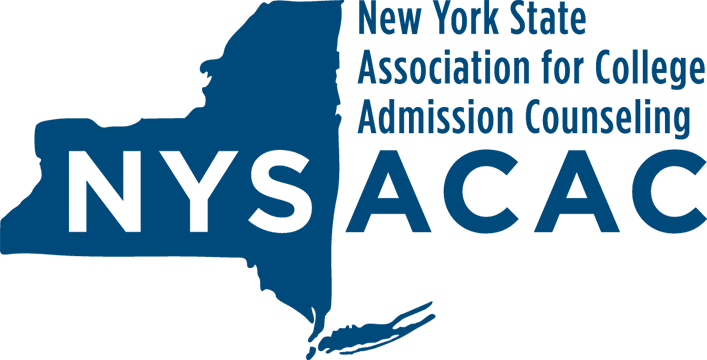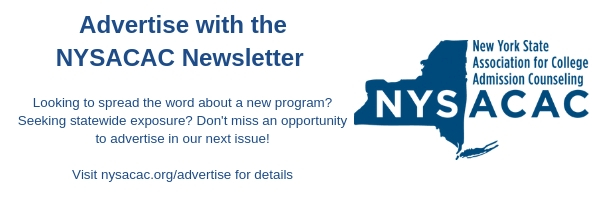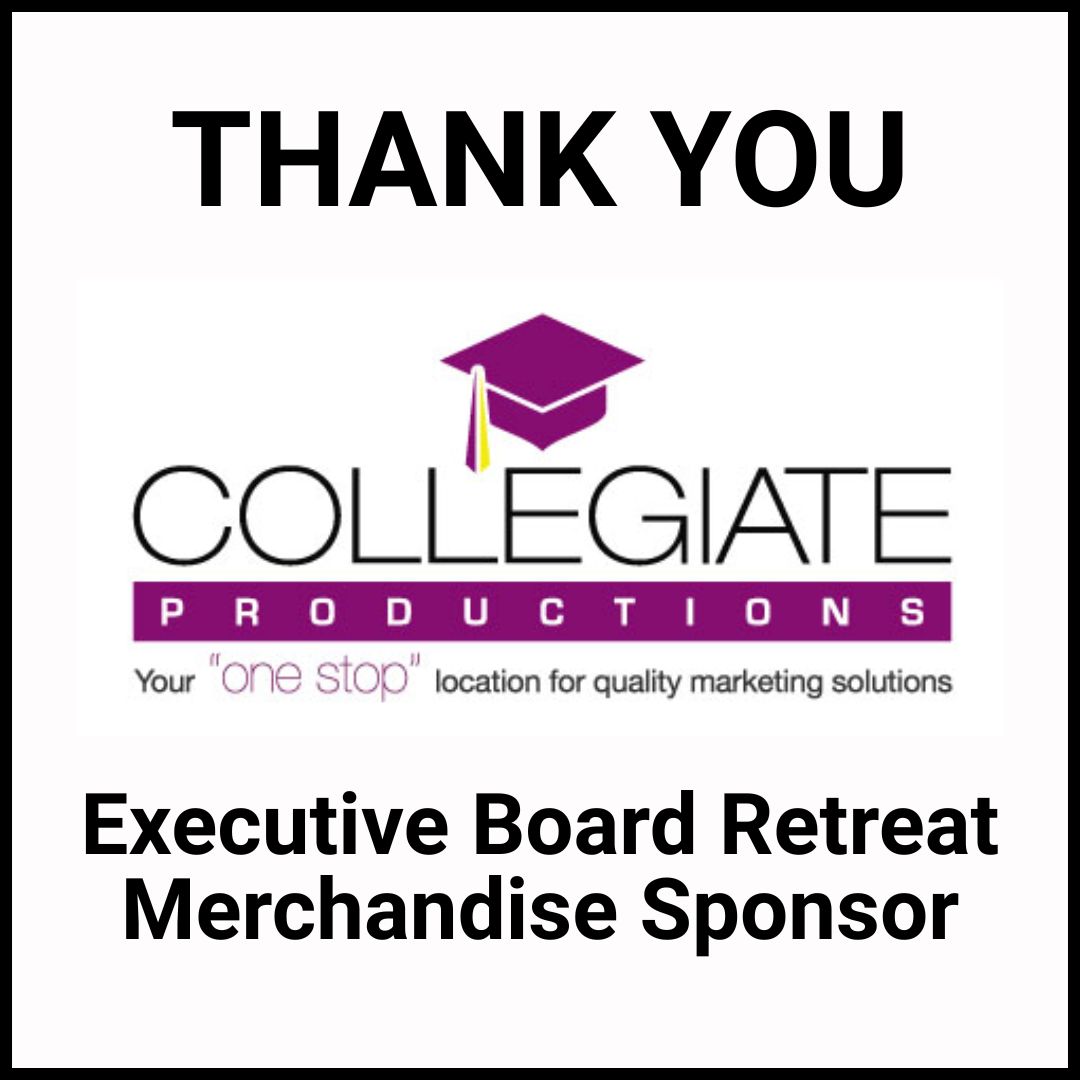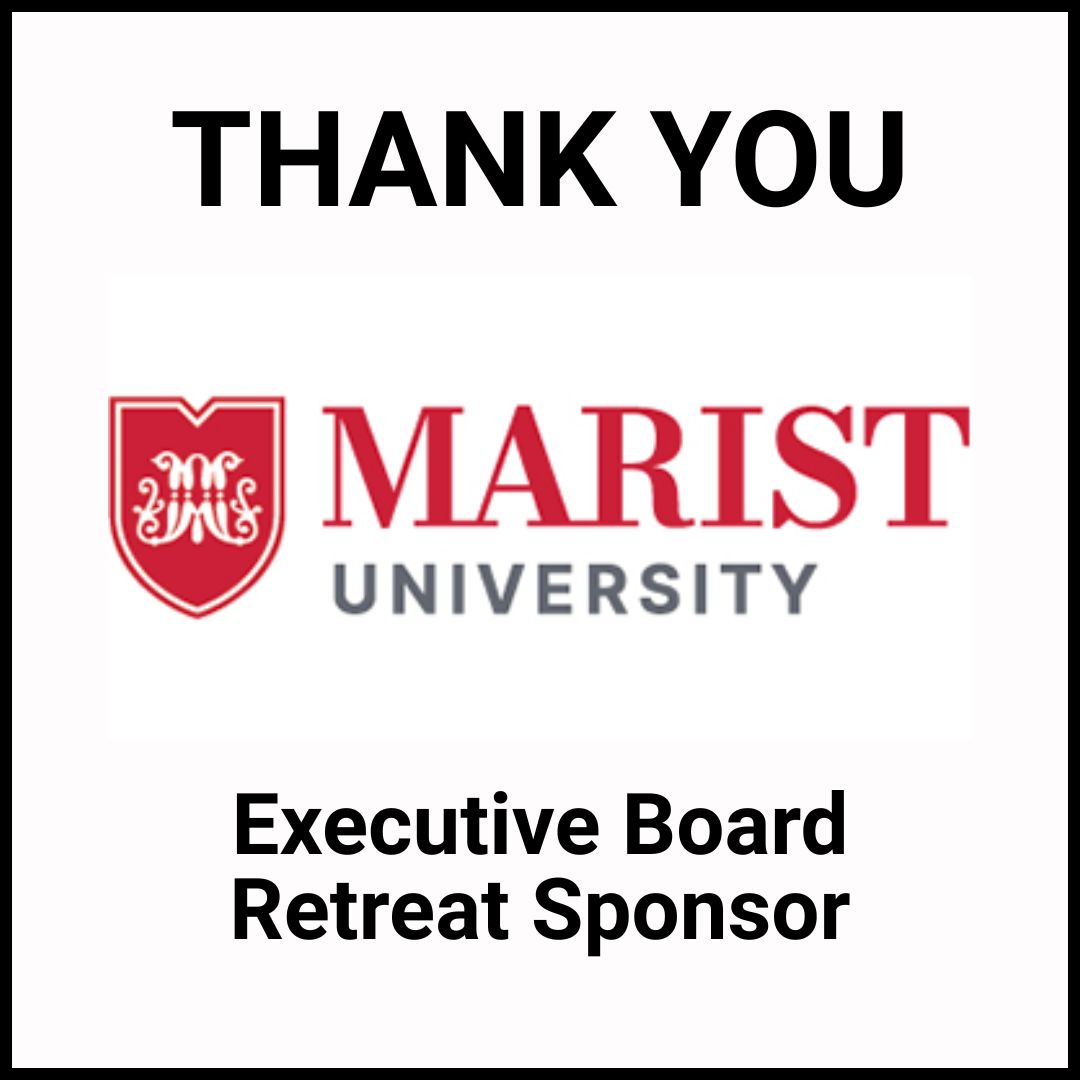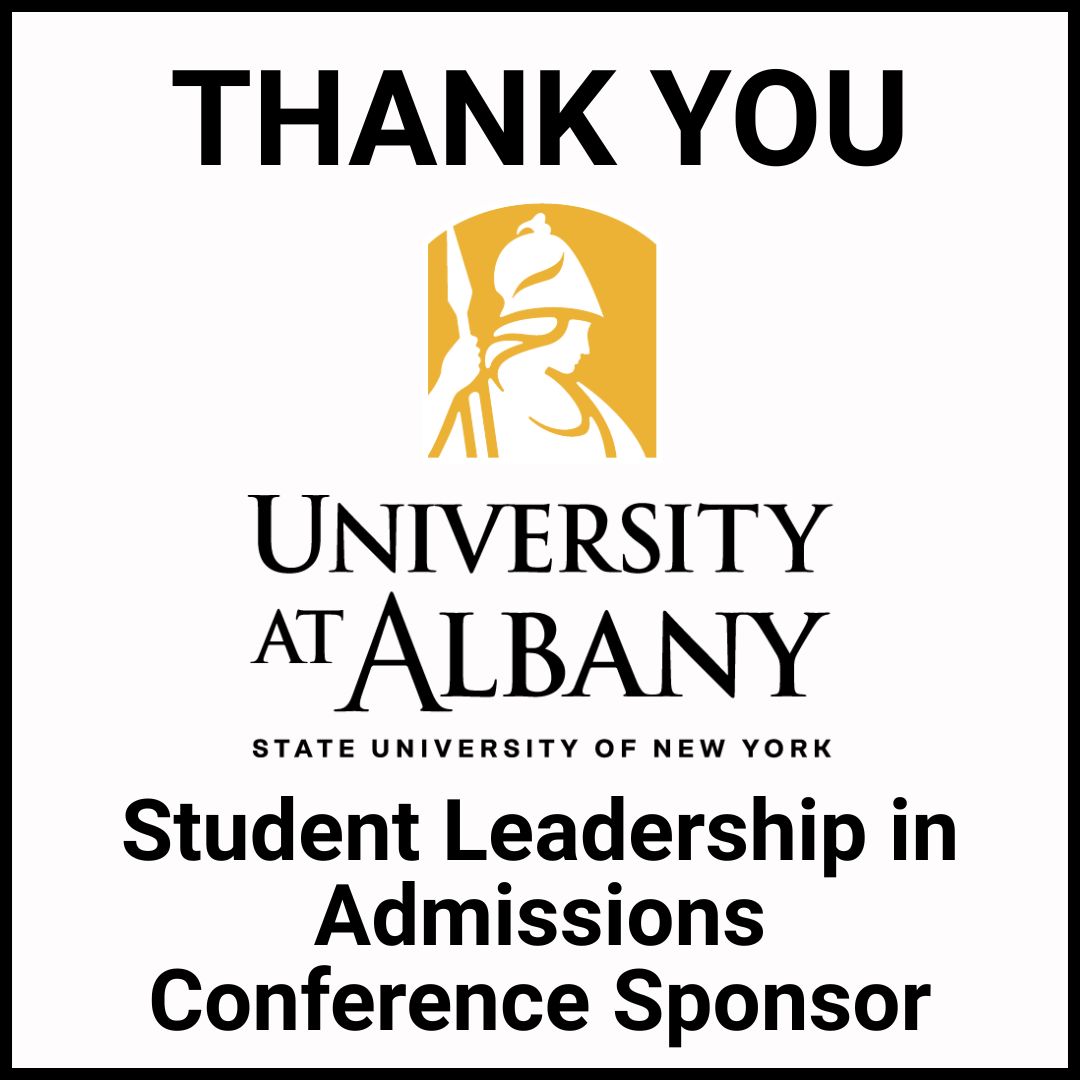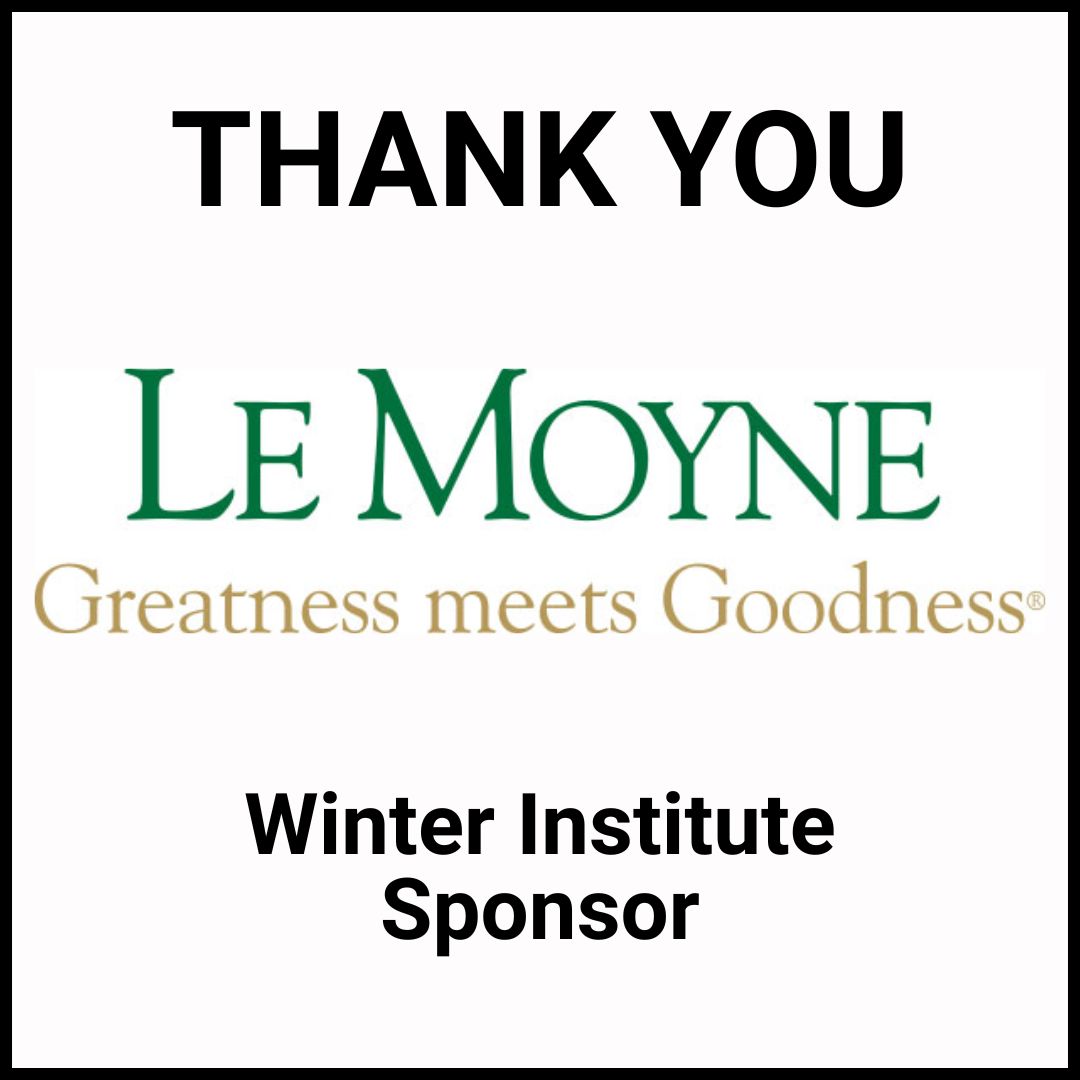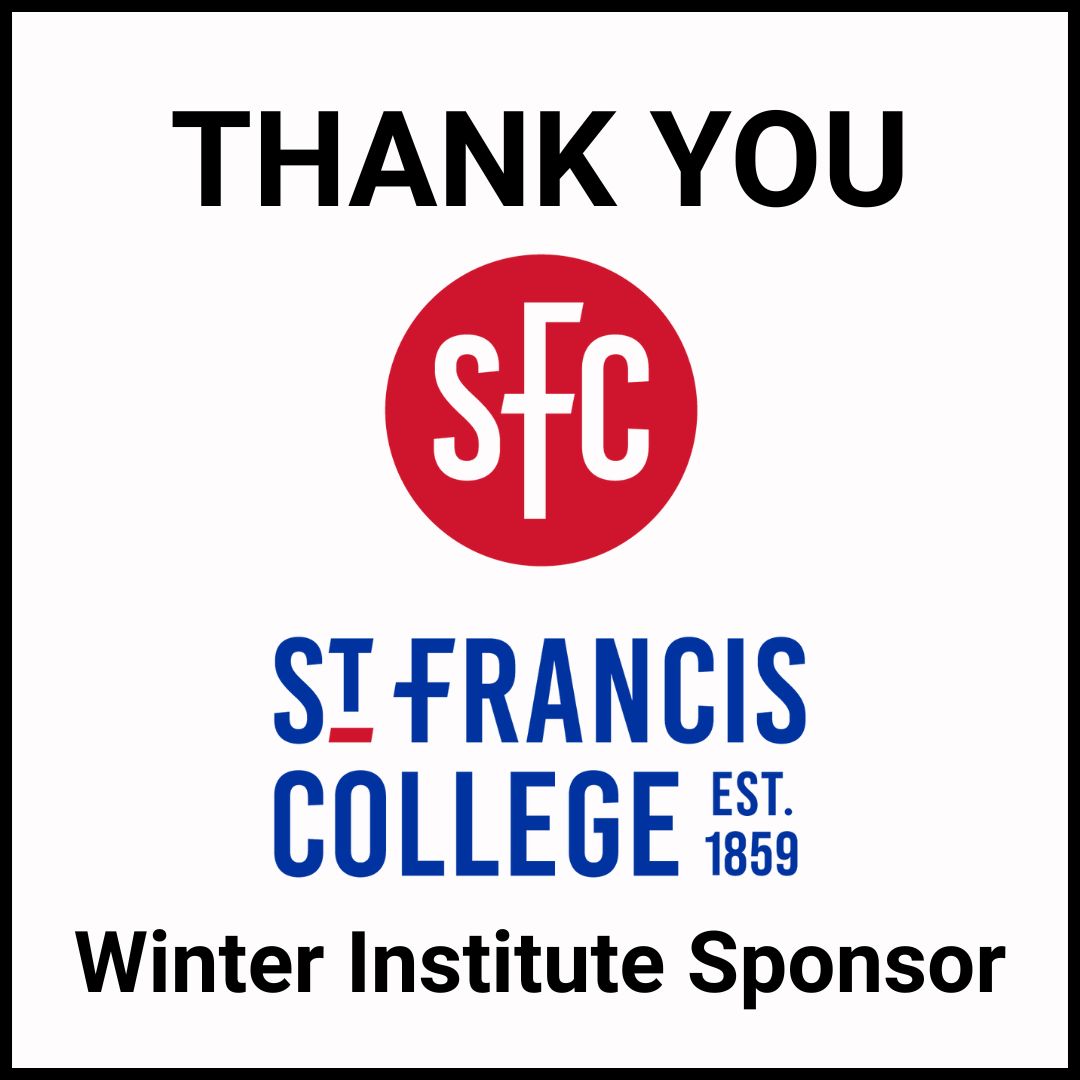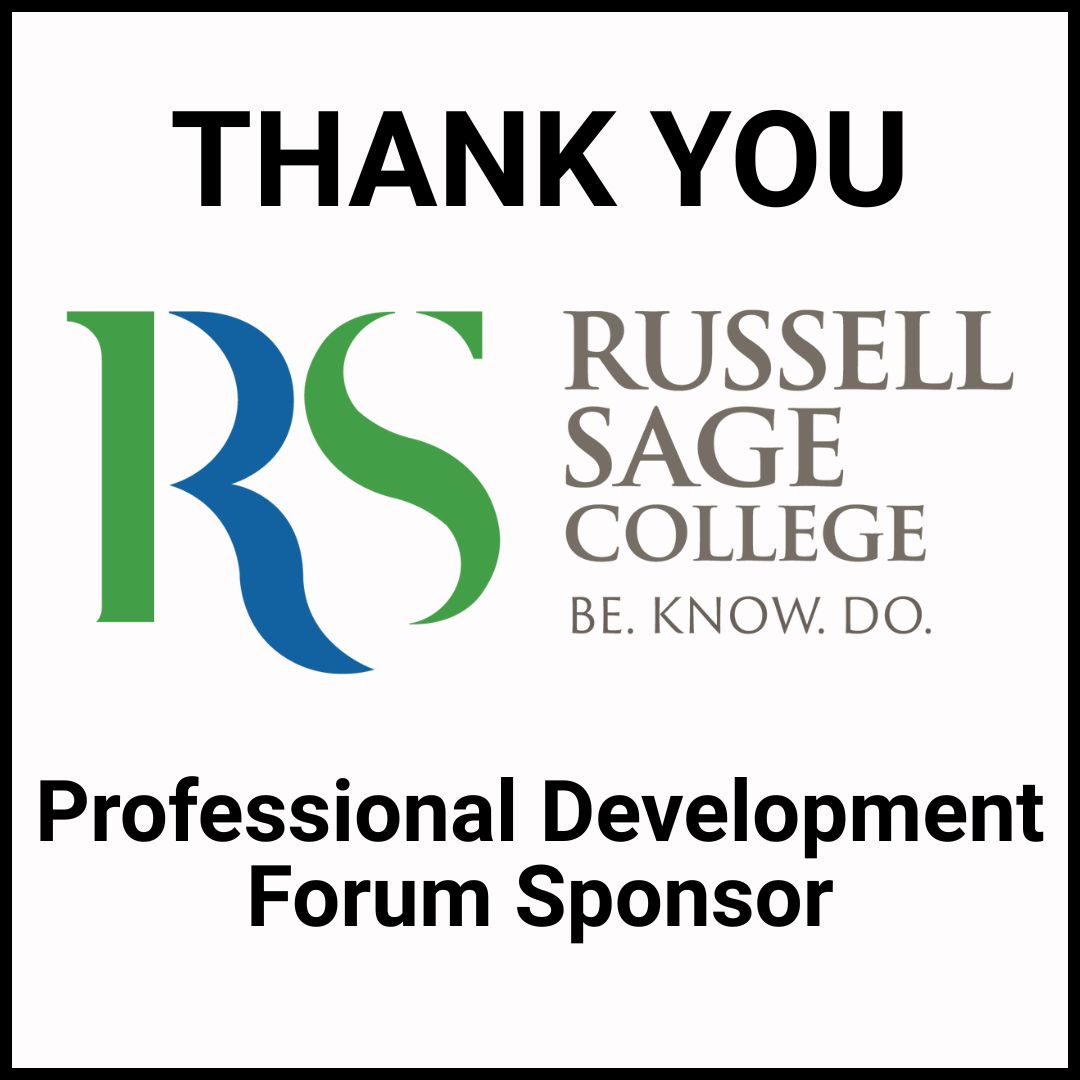- Home
- About
- News
- Government Relations
- Professional Development
- Community Outreach
- Donate
- Membership
|
Message from the President Cassie Magesis, NYSACAC President Camp College as Professional Development The first professional development experience of my career was NYSACAC’s Camp College. I was three weeks into my first-ever job as an educational counselor at the Options Center in New York City, when our director told us we would be chaperoning a group of our students to Union College for the weekend. I knew the program we would be attending was called Camp College, but knew little else about what the weekend would entail. Our students experienced a crash course on all things college that weekend. They had the opportunity to sleep in a college dorm, eat in the dining hall and walk the Union campus. They made new friends from across New York State, learned about the college and financial aid application processes and listened to lectures from Union professors. Simultaneously to my students’ crash course, I experienced a crash course of my own: during Camp I was able to learn from some of the best in our field, my fellow mentors and chaperones. I learned best practices for facilitating groups of students, facilitation techniques for workshops, and Camp served as my introduction to the importance of networking and relationship building in our field. Camp also served as my introduction to NYSACAC, and I am forever grateful for that. I knew that an organization that put so much time and effort into curating an experience as powerful as Camp College for its young people was an organization I wanted to join. Camp College is, rightly so, known as a phenomenal opportunity for young people to experience what college could be like, and to learn how to navigate the college and financial aid application processes. I truly believe that Camp College is just as powerful a professional development opportunity for the counselors as it is for the students. ____________________________________________________________________________ Conference Reflections Stephanie Espina, NYSACAC President-Elect One NYSACAC Past President knows “a thing or two” about planning annual conferences at Le Moyne College. Here is a quick Q & A with Lisa Sohmer and a flashback to the last NYSACAC conference hosted at Le Moyne 15 years ago.
What are your fondest memories of the 2004 Le Moyne Conference? The items for the Silent Auction were in my suite, so (then) President-Elect Richard Alvarez and I borrowed a golf cart and drove down to get them. We hit some of those hills like they were giant moguls! We parked, loaded the cart and then realized that we did not know how to put it in reverse! We were thinking about picking it up and turning it around when two helpful Le Moyne students arrived to flip the switch and save the day.
Of course there was also the rowboat full of shrimp, the fancy martini ice slide and the hundreds of luminaria lighting the path as we returned from dinner.
What are some of your favorite things to do in Syracuse, NY? Campus visits and Dinosaur BBQ.
If you could go back in time and tell your President-Elect self what you know now, what advice would you give yourself? Relax. Do not be afraid to ask for help if you need it. Learn everything you can. Turn colleagues into lifelong friends.
What are you most looking forward to at this year’s conference? Reconnecting with colleagues and friends. Taking advantage of all the educational and social opportunities. Watching Stephanie Espina — who I met when she was a rookie at Summer Institute in 2010 — thrive throughout the conference and accept the gavel on Friday. Seeing what has changed at Le Moyne over the past 15 years. What advice would you give to conference first timers? I always say this, but your first conference should be all about networking. Exchange business cards (in a pinch, you can take a picture of a new friend’s name tag) and follow-up when the conference is over. Look for people with many ribbons — they will know a lot about NYSACAC and will be happy to help you get involved. Participate in everything — including our bocce tradition.
As a Past President, why do you choose to remain involved in NYSACAC? I know that my membership in NYSACAC provides the best professional development available. At this point in my career, it is where I find opportunities to share what I have learned and to mentor my newer, younger colleagues. In terms of building and keeping relationships, networking and enjoying the profession, there is simply no other group like it. ____________________________________________________________________________ Membership Spotlight: Maria Franqui Emma LeMay, Class of 2020 Communication Major at Marist College “Although Maria is relatively new to college counseling, she embraces and understands the responsibility of her role. Maria’s efforts are about making sure young women realize their opportunities do not have constraints on them and helping students achieve their dreams. Maria is committed, caring, holistic, and passionate, and she takes advantage of all the opportunities NYSACAC offers.” ––Kristen Connor What is your favorite quote? “Relax, you’ll be fine.” How did you begin working in college admissions? I was a language paraprofessional to a middle school student at the Urban Assembly School for Criminal Justice, and I eventually ended up doing an internship for school counseling with Alison Burke. She introduced me to college access, the different facets of what a school counselor does, and crisis intervention. When Alison went on maternity leave, I was asked to take over the reins by the principal at the time. What advice can you offer new professionals in the field? Take your time and enjoy the moment with each and every student. What is a common misperception about college counseling? That all we do is just submit applications for students. People do not realize the emotional piece that comes with the college process and the relationships between counselors and students. I am their cheerleader, their supporter, and their advocate throughout the application process. What is a defining moment in your career? Being a part of the mother-daughter trip through our school. It is a tradition where we facilitate a parent-daughter trip; parents are able to explore and have conversations about going to college and see different types of schools. Most of our parents are not familiar with how applications work, financial aid, etc., so it is great for parents to learn about the college process firsthand as opposed to learning it from me or their children. What is your favorite part about college counseling? I love seeing how students help each other. In our school, there is definitely that sisterhood of students supporting other students. My other favorite part is the overnight college trip where we take 35-40 students to a college in a different area (which varies each year). We go on a tour and info session, and the students take notes and ask questions. It is a lot of fun. What can you be found doing on a Saturday? The luxury of sleeping until 7:00 and watching Netflix. What is a piece of advice that has stuck with you? Leave your personal views at the doorway of the school and just be present for the student. What is your favorite part of the college counseling process? The beginning is my favorite––introducing the college application process to the students and seeing how they grow to become advocates for themselves. How has NYSACAC impacted your career? NYSACAC has impacted my career tremendously through the conferences. I still consider myself a new counselor, but I learn so much from networking with college admission counselors. They have helped me grow and think outside the box when it comes to college counseling. Who would you like to nominate? Danielle Insel of the Urban Assembly Institute for Math and Science for Young Women. We both started together, and she has been a great support system for me. ____________________________________________________________________________ The Real Shame of the College Admission Scandal Carl “Sandy” Behrend, NACAC Past President, NYSACAC Past President, Behrend Consulting For those of us in the college admissions business, the recent events have caused public outcry and quite frankly demeaned us all no matter what our role is in the process. As members of NYSACAC and under the umbrella of NACAC, we all live by a code of ethics that gives us a moral compass as we go about our daily business. The tragedy of parents of wealth and influence finding ways to massage the accepted process for the sake of being able to put the “right” sticker on the back of the Mercedes is an affront to all of us who labor in the trenches every day to guide students and their parents toward the right academic, personal and financial fit. The increased public scrutiny, however, is going to be far-reaching, particularly for colleges. Whenever the spotlight is suddenly pointed and focused on a certain situation, group of people or institution, the intensity causes an era of squeaky-clean living and operation. While this cleansing has its merits and perhaps place in the process every so often, it can be problematic for many colleges. The world, in the near future, is not going to embrace the fact that colleges have “special admits” nor completely understand that most of them have a small pool of at-risk students that they accept at the low end or below the current admission parameters. Some of these students round out a class and bring a diversity of thought, character and perhaps out-of-the box actions to a campus. Sometimes they graduate with honors and sometimes they leave the campus after a short period of time. All these students are there, however, because colleges are allowed a small amount of flexibility that challenges the ethical line in the sand. This admission practice has gone on as long as there have been institutions of higher learning. Over the course of my many years in the field, primarily as a high school counselor, I was invited to spend a day as a college admission representative while a member of the college staff went and did my job. I read applications and noticed a category of “special admits.” I was informed that the student in question was not at the same admission standards I was applying to other students, but would be admitted. Who were these students? If a family gave a substantial donation to the college which resulted in a new building, several endowed professorships and a sustained scholarship funding source for future disadvantaged students, what is the college to do if that family has a child or grandchild that applies to the institution? If that child or grandchild falls in the at-risk pool for the college, is it wrong or not expedient to accept them? The purists will say this is terrible and the college is taking up a spot for another really qualified student. Really? When is the last time that any college has said the incoming class has to be exactly 620 students? If we accept 618 students, we are in terrible shape and if we have 621, we will have to put them up in a local hotel instead of a dorm. Any less or any more and we are going to shut our doors! The unpredictability and the margin of error in yield is something that only people in the business can truly understand. An occasional “special admit” will most likely not deny another student a chance to enroll because that is not how the numbers work. There is another factor in “special admits” that plays out in many cases. It is called the faculty and the personal fit. My freshman roommate in college (back in the days when freshman had to wear beanies and be able to sing the fight song on demand) was the grandson of an alum who had given enough money to have one of the new dorms on campus named after him. My roomie was a nice young man, but after a semester of unyielding professors, who did not care who his grandfather was, and a personal fit that was contradictory to who he was, he was gone. The system itself weeds out special admits or raises them to the level of a solid academic graduate. The second part of flexibility in admissions for colleges is that at-risk pool. I have always been supportive of this because we all have or have had students who for whatever reason do not fit the mold of the typical student headed off to college. They slack off in high school, have mediocre test scores and are not mainstream athletic, service or activity participants. Yet there is something there. Their high school counselors see it and the student writes a really authentic, insightful essay. Someone in admissions goes to bat for them. They are accepted and sometimes drop out their freshman year or possibly turn out to be a campus leader and influencer or something in-between. We cannot let this admission flexibility go away because some parents, coaches, administrators and a consultant decided to use a side door as an advantage to get into college. If a politician receives a large donation from an individual or corporation, do they not feel somewhat beholden to that person who expects a favor down the road? If a business receives a huge contract from someone, is there not a little favoritism when it comes to future situations? We are a society that responds to both financial and personal influence. As long as this influence has both legal and moral boundaries and operates on progressive future need and not greed, then please do not let public scrutiny, because of this recent scandal in our world, tie the hands of our college members and partners. ____________________________________________________________________________ NYSACAC Summer Institute Annemarie Cervoni, Public Relations Director REGISTRATION IS OPEN!! The annual NYSACAC Summer Institute Skidmore College in Saratoga Springs, NY August 6-9, 2019 Professional Development Networking Case Studies This four-day intensive mentor-based institute brings new college admissions professionals, high school counselors and CBO counselors together with energetic and seasoned mentors to grapple with a wide range of admission counseling issues. http://www.nysacac.org/summer-institute ____________________________________________________________________________ The Fantastic College Fair Claire Preston, New York Regional Recruiter at Rutgers University–New Brunswick There are great college fairs and then there are FANTASTIC college fairs. What is the difference? Below are some ideas that will help you plan your next college fair. Colleges really appreciate your efforts in planning these events and want to see your students succeed. Your fair gives students a chance to learn about college opportunities and enables us a chance to meet your wonderful students! #1. Timing and date selection is the most important aspect of your college fair. Since admission representatives’ budgets run lean, try to plan your fair with other nearby high schools. The logistics of planning travel and staying within a budget are intense; if college reps can attend back-to-back events then it is an easy decision! #2. Fair duration: a 1.5-hour to 2-hour college fair that allows the college rep to attend another fair on the same day is a formula for success. If a college representative can attend three or more events in a day, our directors are happy! Be creative in planning your college fair; mornings, after school, and evenings all work for college reps. All event times have pros and cons and while evening fairs are popular, if the date has many conflicts or if attendance has been low, consider a daytime fair. Many schools have been successful with inviting parents to daytime events due to their flexible work hours. #3. Register your fair with Strive Scan! Strive Scan is a fantastic college fair mobile app that is easy to use, saves time, and helps us collect accurate data. Students download the app on their phones and create profiles. At the fair, the colleges that have already created a Strive Scan account can simply scan interested students’ cell phones. No more illegible handwriting, no more hand cramps, no more huge lines, more meaningful conversations! Strive Scan’s fee is reasonable and paid for by either the high school or college. It is a tool in widespread use in the Midwest for the past few years. Email the creator of Strive Scan, Dan Saavedra at [email protected] for more information. #4. Well-preparedstudents who ask great questions make college reps smile! Students may find it helpful to bring prepared questions covering topics such as tuition, financial aid, university size, career outcomes and majors. Students who have classroom discussions about applying to college are better applicants. It is very apparent to us when students have been coached on how to interact with professionals; they are polite and ready to learn. #5.Layout and placement of colleges is important for traffic flow and crowd control. Alphabetical order does not always make sense. If the most popular schools are in one corner, than other colleges may be completely overlooked. Spread out the schools that garner the most interest. #6. Water please! Admission representatives love to talk! Two hours, no problem, but water is essential. When carrying 20 pounds of brochures & materials, usually the water bottle gets left in the car. Providing 16 oz. water bottles is greatly appreciated. #7. Hospitality, also known as a light meal, prior to the fair is always appreciated. Many schools cannot provide this and we understand. For those that do, know that it truly helps the representative who may be attending several events per day. Many schools have their parent associations or cafeteria staff provides sandwiches, etc. #8. Extra fun details! During daytime college fairs, we love it when:
Thank you for all you do for your students. Wishing you a FANTASTIC college fair! ____________________________________________________________________________ ____________________________________________________________________________ Host a 2019-2020 NYSACAC Regional College Fair Betty Chen and Melissa Bellantonio, College Fair Co-Chairs College Representatives - are you looking for a great way to have high school students on your campus? High School Representatives - would you like to host 50+ colleges for an event? Let us know - we are looking for hosts for our upcoming 2019-2020 NYSACAC Regional College Fairs! Please contact Betty Chen and Melissa Bellantonio at [email protected] for more information. ____________________________________________________________________________ ‘Some rich kid will just buy my spot’: The disheartening message the college admissions scandal sent my New York City students Ummi Modeste, Chalkbeat New York - March 25, 2019 As a college advisor at City-As-School High School, one of the largest and oldest schools designed to re-engage students who choose to transfer high schools, this month’s college admissions scandal came as no surprise.
It’s not breaking news to me that the college admissions process tends to favor those already privileged in society. I watch it play out every day as my colleagues and I fight to get our students into college — and to convince our students that they deserve that opportunity.
Our New York City students do not have parents who can afford to bribe anyone to ensure a spot on a college athletic team, or in the freshman class of any university. They are racially, ethnically, and socioeconomically diverse. Many will be the first in their families to graduate high school.
When our students reach us, they are often frustrated and disillusioned. Our students come from other high schools across the five boroughs, and at first they don’t believe us when we tell them their experience will be different at City-As. Then we start working with them on projects that engage and excite them while building their academic skills.
Too often, I hear those students say they are not “college material” even though they have already demonstrated the maturity, responsibility, and curiosity necessary to succeed in college. It is my job to help our students overcome this perception of deficiency and to help them recognize their strengths and capabilities.
However, the recent scandal makes it even harder for our students to believe they have a fighting chance in college. They already think they cannot compete with students from across the country. The news offered an upsetting reminder of just another way the scales are tilted against them.
“See, Miss? I told you it doesn’t matter if I earn all my credits,” one student commented recently. “Some rich kid will just buy my spot.”
I point to the success of our alumni who routinely return to City-As to speak to students, and just to say thank you. They’re examples of young people who overcame tremendous obstacles and have created fulfilling, prosperous lives. Even when my students do believe that college is for them, it’s not simple to arm them with the tools they need to get there.
We host a college fair in our building every year, which alleviates the stress of having to compete with hundreds of students from more traditional schools for college representatives’ attention. We run a “Lunch and Learn” series where we serve pizza, and have college representatives who understand our school talk to our students in small groups. We take students on college trips so they can envision themselves on campus. We also have hard conversations about the net cost of higher education — including books, materials, and cost of living — which students do not always see right away.
We provide guidance on how to prepare for entrance exams and other placement exams. As part of the city’s College Access for All initiative we will be participating in SAT School Day for the third year, giving every student the opportunity to take the SAT for free surrounded by support in their school community, not on a Saturday at some strange location.
Our team of college advisors also trains school staff to write powerful letters of recommendation that can highlight our students’ strengths and unique qualities, especially those who have been on an upward trajectory since they enrolled at City-As. We want the people reviewing their applications to see the depth and passion of research in their portfolio projects, and to ultimately recognize the potential our students will bring to their campuses.
In other words, we put a huge amount of work into this process — and our students put in even more.
College admissions scandals come and go, but every year thousands of New York City seniors decide if and where they will attend college. My hope is that the experience of the students I serve will one day be no different than that of any other student across the country.
For now I would be happy if the media would highlight the successes of students like mine, who follow the rules, work hard, seek guidance, choose wisely, and are enrolling in the colleges they deserve to attend.
Ummi Modeste is a college counselor at City-As-School in Manhattan, a public transfer high school founded in 1972 as an alternative for struggling students. This story was originally published by Chalkbeat, a nonprofit news organization covering public education. Sign up for their newsletters here: chalkbeat.org/newsletter ____________________________________________________________________________ Camp College Applications are Live Rianna Miller and Jonathan Hoster, Camp College Co-Directors Camp College at Nazareth College: July 12 – 14, 2019 High School Counselors & CBO Counselors: Bring Students & Be a Chaperone/Mentor! Submit Applications at: www.nysacac.org/camp-apps Questions: [email protected] ____________________________________________________________________________ Membership Spotlight: Heidi Green Emma LeMay, Class of 2020 Communication Major at Marist College “When I had the fortune of meeting Heidi, I instantly realized what a strong mentor and role model she was for me. She is a public school administrator with a wealth of knowledge and great experiences. Heidi is a mastermind of organizing speakers, workshops, and mentors, especially for young, new professionals. There are not many Heidi Greens out there. She is someone I strive to be like.” ––Cassie Magesis What is your favorite quote? “No matter how thin the pancake, there’s always two sides.” When did you know you wanted to be a college counselor? I started my master's in teaching, expecting to become a middle school math or science teacher. On virtually the eve of my student teaching experience, I had a change of heart, recognizing that the best part of my job was the relationships I built with students and their families. So, with an "almost" degree in teaching, I did a 180 and started a master's in school counseling program. My journey suddenly became a little longer, but I would not trade that decision for the world. How did you begin working in college admissions? I was a tour guide and student interviewer in college. I also participated in student government and had an internship in the alumni relations office. From those experiences, I knew I wanted to be in higher education, applying for a number of various jobs, from alumni affairs to development to admissions, at different institutions. As is often the case in our work, I was offered a job at my alma mater, University of Rochester, so that is where I began my professional journey. What is a piece of advice that has stuck with you? Do not let a perfect plan get in the way of a good plan. What advice can you offer new professionals in the field?
What is a defining moment in your career? I had the opportunity to travel to Washington DC for a celebration of school counselors during National School Counseling Week a few years ago. I met with all sorts of wonderful people from the American School Counseling Association (ASCA), within the Department of Education and on Capitol Hill. I had the opportunity to spend time with Senator Kirsten Gillibrand, advocating for the school counseling profession. It was amazing, doing my small part in validating the work we do every day on behalf of students and families. How has NYSACAC impacted you career? Let me count the ways! I have been part of NYSACAC since 1992 in a variety of capacities. The people with whom I have worked with on committees, the board, the Summer Institute, have been instrumental in helping me develop as a professional. I have had amazing mentors, too numerous to count, on both sides of the desk. NYSACAC has also allowed me to develop my leadership skills which I believe has had a positive impact on my work in the counseling department at Fayetteville-Manlius High School. What is your favorite part of the college counseling process? Meeting students and helping them develop a plan to where they want to be. It is certainly not a one-size-fits-all approach to post-secondary planning. I tell my students, “Wherever you are right now is where you are supposed to be.” And then, we get started! What can you be found doing on a Saturday? Sitting on the sidelines of a soccer field cheering on my kids who play the sport year-round. Who would you like to nominate? Denny Nicholson, assistant dean of admissions at Syracuse University, because he has been a leader in the college admissions profession for 25 years. He is a mentor to many and a friend to all. ____________________________________________________________________________ ____________________________________________________________________________ Event Calendar and Important Dates June June 11, 2019: Best Practices in Adult and Online Recruitment-Industry Insights via the NACAC Webinar July July 28-31, 2019: NACAC Guiding the Way to Inclusion (GWI) in Fort Lauderdale, FL August August 20, 2019: FAFSA Updates via the NACAC Webinar September September 15, 2019: Long Island National College Fair at NYCB Live, Home of the Nassau Veterans Memorial Coliseum September 26-28, 2019: 2019 NACAC National Conference at the Kentucky International Convention Center October October 13, 2019: New York City STEM College and Career Fair at the Jacob K. Javits Convention Center November November 12, 2019 : New York City Performing and Visual Arts College Fair at the Jacob K. Javits Convention Center ____________________________________________________________________________ Imagine Grant Opens Doors for New York City StudentsPam McKeta, NACAC Associate Director of Communications for Digital and Print Media It’s hard for students to dream about college until they can really see what college has to offer. With the help of an Imagine Fund grant, Ummi Modeste-Rogerson, a college and career advisor at City-As-School HS (NY) [and NYSACAC member], was able to bring the campus experience to her high school students. The grant funded charter buses and food as the group of students visited Onondaga Community College, Tompkins Cortland Community College, SUNY Cortland, SUNY Binghamton and SUNY Broome. “Our students come from all over New York City, but most have never visited a college campus outside of our local community college and many will be first-generation college students. These trips were eye-opening for our students and introduced them to a whole new world of opportunities,” Modeste-Rogerson said. “Because of the Imagine Grant, our students were able to see themselves on college campuses, having that residential college experience that they’ve only read about or seen in movies. The trips also gave college admission personnel the opportunity to meet us and our students in person, so that they have a better understanding of our school and the students we serve.” Donate Now: Imagine Fund grants offer financial support to individuals or NACAC affiliates. Funds are used to support professional development, as well as innovative programs serving students and/or the profession. Reprinted with permission from the NACAC Admitted blog: http://admitted.nacacnet.org/wordpress/index.php/2019/04/12/imagine-grant-opens-doors-for-new-york-city-students/#more-3127 ____________________________________________________________________________ Movers and Shakers… Member UpdatesStephanie Espina, Director of Freshman Admissions at Adelphi University (NY), was honored with the 2019 ATHENA Young Professional Leadership Award by ATHENA International. The award is granted to “emerging women leaders that meet the criteria of demonstrating excellence, creativity, and initiative in her business or profession, providing valuable service to improve the quality of life for others in the community, and clearly serving as a role model for young women both personally and professionally.” (as reported in the Admitted blog 4.4.2019) SUNY Geneseo has named Costas Solomou, dean of undergraduate admissions and orientation at The George Washington (GW) University, as the College’s new vice president for enrollment management. He will begin his new position on August 8, 2019.
For more, visit the SUNY Geneseo news center. ____________________________________________________________________________ |
